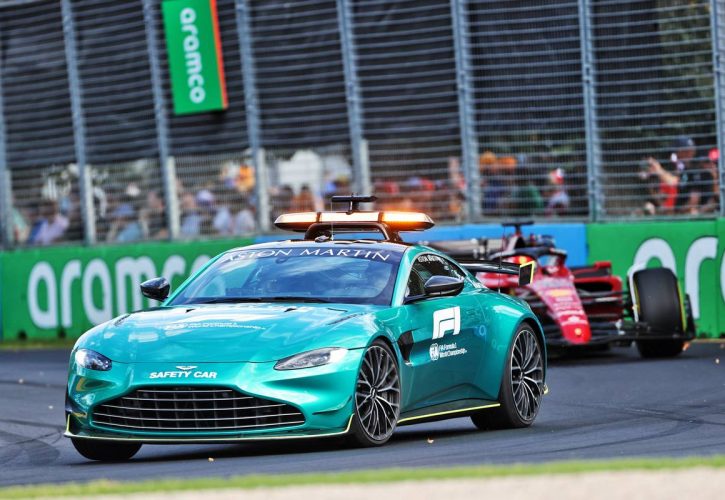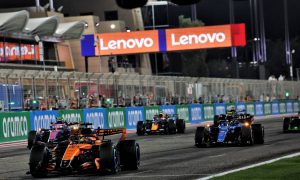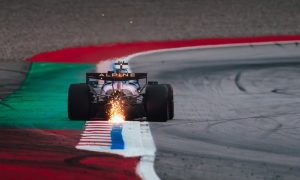
Max Verstappen's criticism last weekend in Australia of F1's Aston Martin Safety Car has triggered a pointed response from the FIA.
The Red Bull driver called Aston's 4.0L twin-turbo V8 Vantage a "turtle" after last Sunday's race in Melbourne, claiming that he struggled to put heat in his tyres during the event's Safety Car period.
"There's so little grip and also the safety car was driving so slow, it was like a turtle. Unbelievable," said Verstappen.
Australian Grand Prix winner Charles Leclerc said that he also wanted to complain about the speed of the SC until he noticed how hard driver Bernd Maylander was trying to extract the most from the Aston during the caution period.
Mercedes' George Russell chimed in on the matter, claiming that Mercedes-AMG SC, which splits duties with Aston Martin's Vantage over the season, is a much faster car.
In a statement released on Thursday, the FIA stated that "outright speed" is not the Safety car's primary function.
“In light of recent comments regarding the pace of the FIA Formula 1 Safety Car, the FIA would like to reiterate that the primary function of the FIA Formula 1 Safety Car is, of course, not outright speed, but the safety of the drivers, marshals and officials," said F1's governing body.
"The Safety Car procedures take into account multiple objectives, depending upon the incident in question, including the requirement to ‘bunch up’ the field, negotiate an incident recovery or debris on track in a safe manner and adjust the pace depending on recovery activities that may be ongoing in a different part of the track.
"The speed of the Safety Car is therefore generally dictated by race control, and not limited by the capabilities of the Safety Cars, which are bespoke high-performance vehicles prepared by two of the world’s top manufacturers, equipped to deal with changeable track conditions at all times and driven by a hugely experienced and capable driver and co-driver.
As far as the FIA is concerned, the Safety Car's speed, is very much a secondary concern.
"The impact of the speed of the Safety Car on the performance of the cars following is a secondary consideration, as the impact is equal amongst all competitors who, as is always the case, are responsible for driving in a safe manner at all times according to the conditions of their car and the circuit," concluded the governing body.
Keep up to date with all the F1 news via Facebook and Twitter







